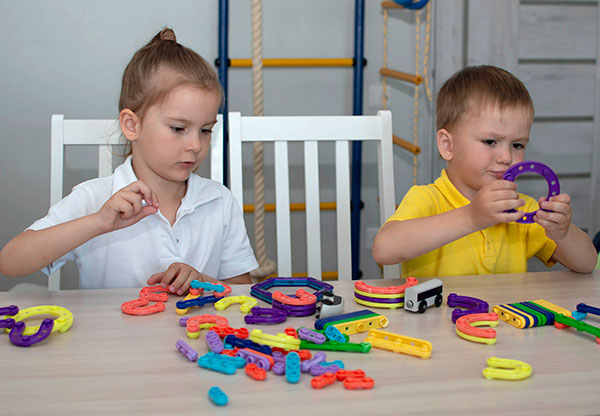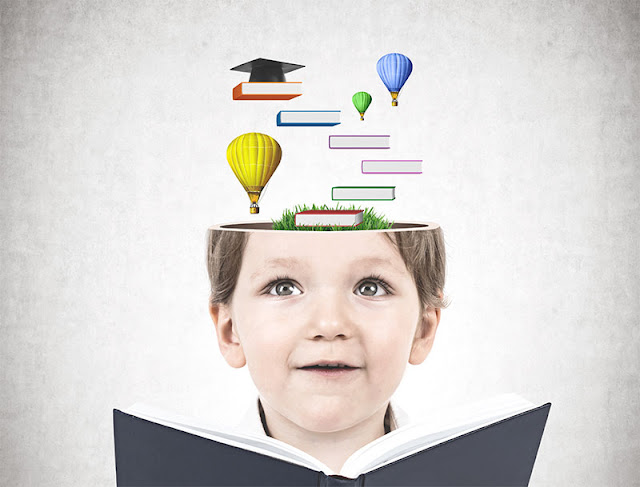Motor skill development is a cornerstone of childhood growth, forming the basis for many physical, cognitive, and social skills that will shape a child's ability to interact with the world. Whether it’s the joy of a toddler’s first steps or the intricate motion of threading beads, motor skills empower children to explore, express, and connect. But how can parents and caregivers actively support this essential area of development? This article dives deep into practical strategies, age-appropriate activities, and expert advice to help you encourage motor skill development in young children effectively.
Understanding Motor Skills and Their Importance
What Are Motor Skills?
Motor skills are the abilities required to control and coordinate muscles to perform specific tasks. These are divided into two main categories:
- Gross Motor Skills: Involve large muscle groups and focus on movements like crawling, walking, running, and jumping.
- Fine Motor Skills: Involve smaller muscles, particularly in the hands and fingers, used for activities such as grasping, writing, and buttoning.
Why Are Motor Skills Important?
Motor skills are essential for:
- Physical Development: Building muscle strength, coordination, and balance.
- Cognitive Development: Enhancing problem-solving abilities and spatial awareness.
- Social Interaction: Participating in group games and activities.
- Daily Functioning: Performing tasks like dressing, eating, and writing, which foster independence.
Key Milestones in Motor Skill Development
Understanding developmental milestones helps caregivers provide age-appropriate support. While every child is unique, general expectations include:
Infants (0–12 Months)
- Gross Motor Skills: Rolling over, sitting up, crawling, pulling to stand.
- Fine Motor Skills: Reaching for objects, grasping toys, passing items between hands.
Toddlers (1–3 Years)
- Gross Motor Skills: Walking, running, climbing, throwing.
- Fine Motor Skills: Scribbling, stacking blocks, turning pages.
Preschoolers (3–5 Years)
- Gross Motor Skills: Hopping, skipping, balancing on one foot.
- Fine Motor Skills: Using scissors, drawing shapes, threading beads.
Visit: importance of mental health for kids
Practical Strategies to Encourage Motor Skill Development
1. Provide Opportunities for Movement
Children need time and space to practice and refine their motor skills. Ensure they have access to both structured and unstructured activities.
For Gross Motor Skills
- Outdoor Play: Encourage running, jumping, and climbing in parks or playgrounds.
- Sports and Games: Introduce simple games like catch, soccer, or hopscotch.
- Dancing: Play music and encourage your child to move freely to the rhythm.
For Fine Motor Skills
- Interactive Toys: Provide blocks, puzzles, and building sets.
- Craft Activities: Encourage coloring, painting, and cutting with child-safe scissors.
- Daily Tasks: Involve them in buttoning shirts, pouring water, or stirring batter.
2. Create a Supportive Environment
- Safe Spaces
Ensure play areas are safe for movement. Use padded flooring for younger children or designate “no-clutter zones” for active play indoors.
- Appropriate Equipment
Provide age-appropriate tools like small-sized balls, crayons, and utensils. For infants, consider items like play gyms or push walkers.
- Limit Screen Time
Minimize screen exposure to promote active engagement in physical activities. Every child deserves to shine! Let’s help your little one build confidence, communication skills, and character with the help of classes designed for personality development for kids.
3. Engage in Play-Based Learning
Play is a natural way for children to develop motor skills while having fun.
Gross Motor Play Ideas
- Obstacle courses using household items like cushions and chairs.
- Nature walks that involve climbing, balancing, or jumping over small obstacles.
- Simple exercises like yoga pose for kids.
Fine Motor Play Ideas
- Threading beads or pasta onto strings.
- Playing with playdough or clay to strengthen hand muscles.
- Sorting small objects like buttons or coins (under supervision).
4. Incorporate Everyday Activities
Motor skill practice doesn’t have to be limited to playtime. Daily routines offer numerous opportunities.
Gross Motor Activities
- Walking to school or nearby destinations.
- Helping with chores like carrying groceries or watering plants.
Fine Motor Activities
- Packing lunchboxes or peeling fruits.
- Drawing or doodling while waiting at appointments.
Visit: tips for money management for kids
5. Encourage Risk-Taking and Exploration
Children learn and grow by taking safe risks. Allow them to climb, jump, or try new physical activities under supervision.
Why This Matters
- Builds confidence and resilience.
- Encourages problem-solving as they navigate challenges.
6. Be a Role Model
Children mimic what they see. By staying active and engaging in physical activities, you inspire your child to do the same.
- Participate Together
- Go for family bike rides or hikes.
- Join your child in their favorite games or activities.
7. Provide Positive Reinforcement
Praise your child’s efforts, not just their accomplishments. Encouragement boosts their confidence and motivates them to keep trying.
Example Phrases
- "Great job balancing on that log!"
- "I love how hard you’re working on building that tower!"
8. Monitor and Support Development
- Keep an Eye on Milestones
- While children develop at their own pace, watch for delays in motor skills.
- Seek Professional Help if Needed
If your child struggles with tasks that peers can manage, consult a pediatrician or occupational therapist. Early intervention can make a significant difference. Don’t wait for tomorrow – Enroll your child in our personality development course today!
Activities to Boost Motor Skills
1. Gross Motor Activities
- Dance and Freeze: Play music and pause it to encourage quick stops.
- Animal Walks: Mimic animals like hopping frogs or waddling ducks.
- Ball Games: Roll, throw, or kick balls for fun coordination practice.
2. Fine Motor Activities
- Cutting Shapes: Use child-safe scissors for craft projects.
- Playing with Tweezers: Use tweezers to pick up small objects.
- Finger Painting: Strengthens hand muscles while sparking creativity.
Common Challenges and How to Overcome Them
Challenge 1: Limited Space
Solution: Use compact equipment like yoga mats or resistance bands for indoor activities.
Challenge 2: Lack of Interest
Solution: Incorporate favorite characters, themes, or stories into activities.
Challenge 3: Screen Time Dependency
Solution: Create a schedule that limits screen time and offers engaging physical alternatives.
Visit: why career skills for kids
Conclusion
How to Encourage Motor Skill Development in Young Children? It begins with understanding their unique needs and providing opportunities for exploration, play, and learning. Motor skills lay the groundwork for independence, confidence, and lifelong learning, and parents play a pivotal role in this journey. By fostering an active environment, modeling positive behaviors, and celebrating every milestone, you help your child build their skills and self-belief. So, whether threading a bead or climbing a tree, remember that every little step is a leap toward growth. Encourage, support, and celebrate your child’s efforts—and watch them thrive!




















